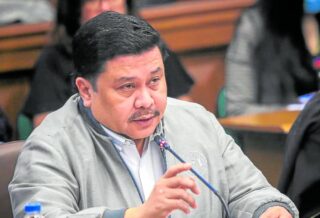Housing developers have committed to build more socialized housing units, the demand for which is expected to reach 1.58 million units between 2012 and 2030, the Subdivision and Housing Developers Association (SHDA) said Friday.
“With over 200 housing developers in its national membership, the association has vowed to work closely with government and industry to eliminate the backlog entirely by 2030,” SHDA said in a statement issued Friday.
Based on SHDA’s Philippine Housing Industry Road map, the current national housing backlog stood at over 3.9 million units, a number seen rising to 6.5 million by 2030 if the backlog problem is not addressed. Based on the same data, it was also shown that socialized housing is second on the list that needed shelter delivery.
To ensure that developers will move to cater to the socialized housing segment, SHDA said it will hold its first business meeting for the year on March 26 to tackle socialized housing compliance which will feature speakers from the Housing and Land Use Regulatory Board (HLURB) and the Board of Investments.
HLURB Commissioner Antonio M. Bernardo is set to discuss socialized housing compliance under Section 18 of the Urban Development and Housing Act. He is expected to talk more on the most availed mode of compliance, the rate of compliance and related data and newly approved and pending guidelines that will affect compliance and incentivized procedures for developers who will participate in rebuilding calamity-affected areas.
BOI, in turn, will present its policies on mass housing, project application process and requirements, registration data and socialized housing compliance of BOI-registered projects in relation to income tax holiday availment.
SHDA, the country’s largest association of real estate developers, earlier sought for direct government subsidies to help address the rising backlog in mass housing.
The group likewise appealed to the BOI to retain the incentives granted to developers for their members’ socialized housing projects under the 2014 Investment Priorities Plan until a new, clear-cut program can be implemented and until the problem on housing backlog is addressed.



